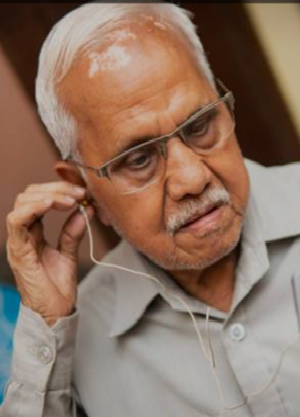Hearing loss is one of the most common conditions affecting older adults. According to the World Health Organization, over 430 million people worldwide experience disabling hearing loss, with a significant percentage being seniors. While often overlooked as a normal part of aging, untreated hearing loss can have far-reaching effects on an individual’s physical health, emotional well-being, and overall quality of life.
Understanding Age-Related Hearing Loss
Age-related hearing loss, also known as presbycusis, typically develops gradually as people grow older. It usually affects both ears and is caused by the degeneration of inner ear structures or the auditory nerve. Common symptoms include:
- Difficulty hearing conversations, especially in noisy environments
- Frequently asking others to repeat themselves
- Perceiving speech as muffled or unclear
- Turning up the volume on devices beyond normal levels
- Withdrawal from social interactions due to communication challenges
Causes and Risk Factors
Several factors contribute to hearing loss in older adults:
- Natural aging of the auditory system
- Prolonged exposure to loud noises
- Chronic health conditions such as diabetes, hypertension, or cardiovascular disease
- Ototoxic medications that can damage the inner ear
- Genetics, which may predispose some individuals to early or more severe hearing decline
Impacts of Untreated Hearing Loss
When left unaddressed, hearing loss can lead to:
- Social isolation and depression
- Cognitive decline and an increased risk of dementia
- Balance issues, increasing the risk of falls
- Reduced independence and quality of life
Strategies to Mitigate Hearing Loss
1. Regular Hearing Check-Ups
Early detection is crucial. Seniors should have their hearing tested at least once every 1–2 years. Audiologists can diagnose the degree and type of hearing loss and recommend appropriate interventions.
2. Use of Hearing Aids
Modern hearing aids are small, discreet, and highly effective. They can amplify sound and filter out background noise, making communication easier. Many models are now Bluetooth-enabled for phone and media integration.
3. Assistive Listening Devices (ALDs)
ALDs include amplified phones, TV listening systems, and personal amplifiers. These tools can help seniors hear more clearly in specific situations.
4. Environmental Modifications
Simple changes like reducing background noise, using visual cues, and facing the person while speaking can improve communication. Captioning services on phones and TVs are also helpful.
5. Healthy Lifestyle Choices
Managing chronic conditions, maintaining good nutrition, and avoiding smoking can slow the progression of hearing loss. Protective earwear should be used in noisy environments.
6. Cochlear Implants
For those with severe hearing loss who do not benefit from hearing aids, cochlear implants may be a viable option. These devices bypass damaged parts of the ear and directly stimulate the auditory nerve.
7. Education and Support
Encouraging family members and caregivers to learn about hearing loss can foster better communication. Support groups and counseling can help seniors cope with emotional effects.
Conclusion
Hearing loss in older adults is a manageable condition. With early intervention, the right technology, and supportive environments, seniors can maintain their independence, stay socially connected, and enjoy a high quality of life. Promoting awareness and regular hearing care is key to healthier aging.



